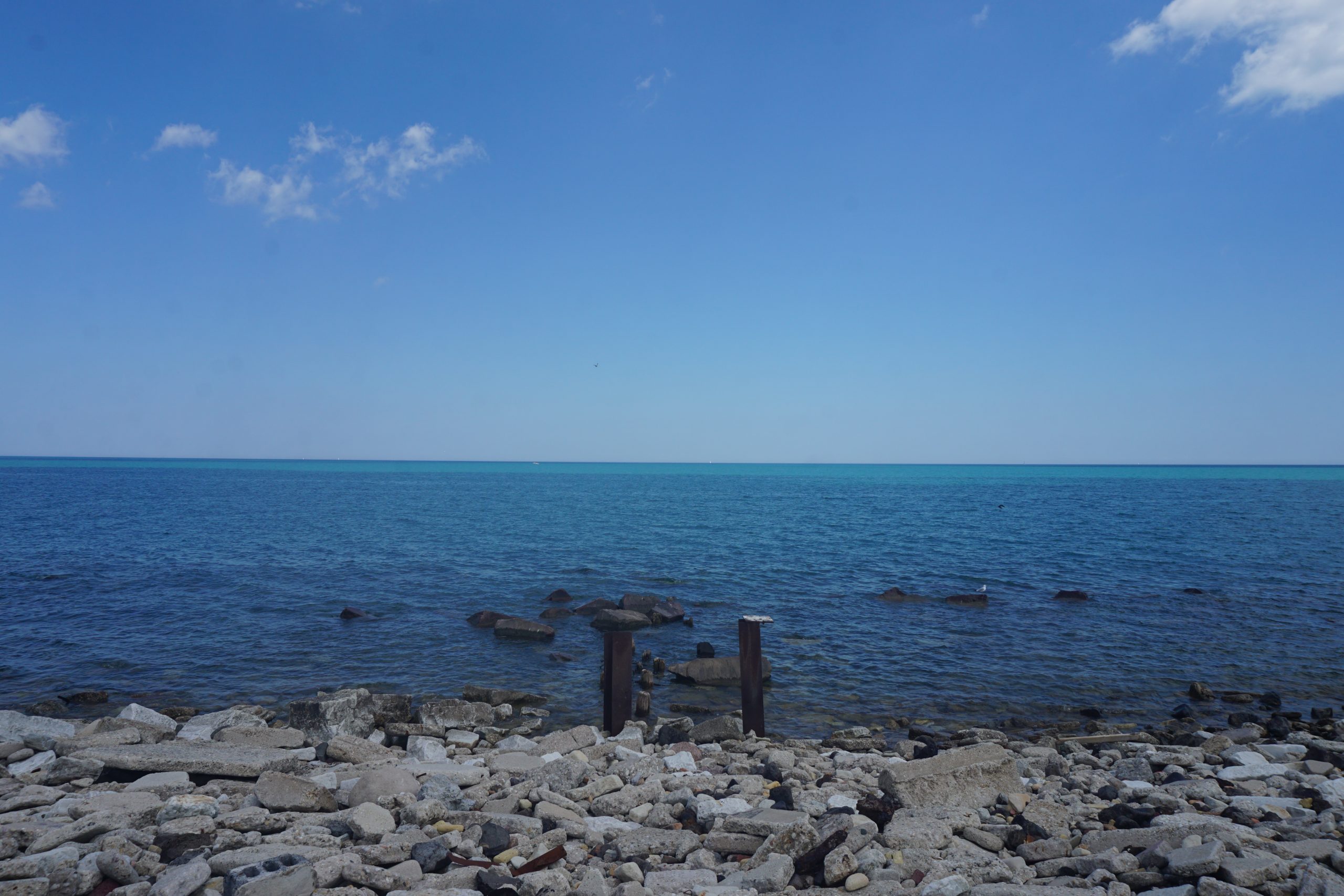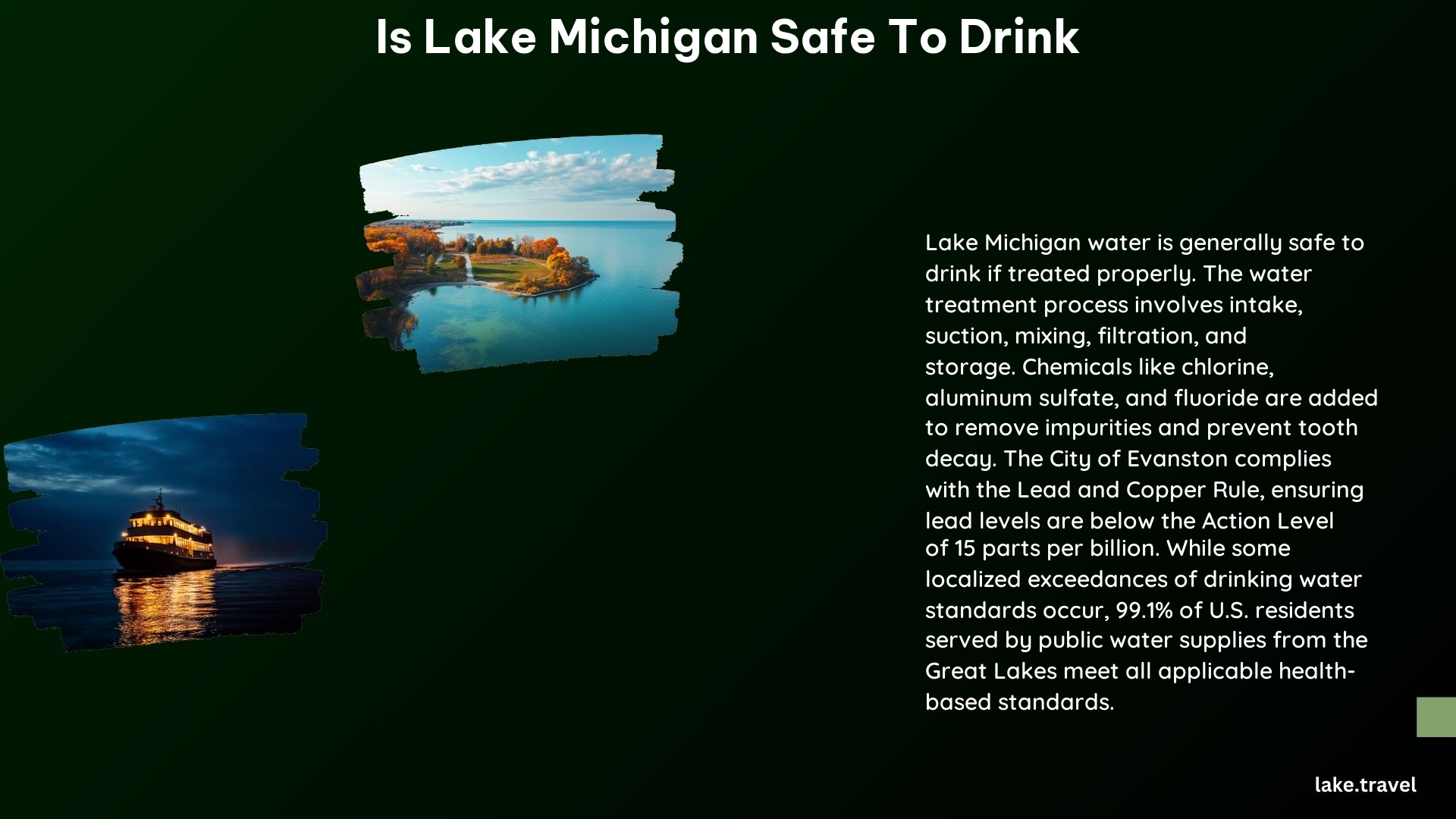Lake Michigan, the third-largest Great Lake, provides drinking water to millions of people. While the lake’s water is generally considered safe to drink if treated properly, there are some concerns about pollution and bacterial contamination.
Is Lake Michigan’s Water Safe to Drink Without Treatment?

No, Lake Michigan’s water is not safe to drink without treatment. The lake’s water contains various pollutants and bacteria that can cause health issues if consumed untreated. For instance, some beaches are closed due to bacterial contamination, and there are recommended limits on seafood consumption due to contaminants in certain types of fish.
Potential Health Risks of Drinking Water from Lake Michigan

Drinking untreated water from Lake Michigan can lead to the following health risks:
- Bacterial Contamination: Bacteria like Giardia can cause illness if ingested.
- Pollutants: Chemical pollutants and heavy metals like mercury can be harmful if consumed in large quantities.
- Toxic Algae: Nutrient loadings in Lake Michigan can lead to the formation of toxic algae, which can be harmful to humans and aquatic life.
Can I Drink Water Directly from Lake Michigan Without Worrying About Pollution or Bacteria?
No, it is not recommended to drink water directly from Lake Michigan without proper treatment. While some areas of the lake may have cleaner water, there is always a risk of contamination. It is best to rely on treated water from municipal sources or use home water filtration systems to ensure the water is safe to drink.
The Treatment Process for Lake Michigan Water
The treatment process for Lake Michigan water involves several steps:
- Intake: Water is drawn from the lake through large intake pipes.
- Suction Wells: Water flows into suction wells where mechanical screens remove trash.
- Low-Lift Pumps: Electric pumps lift the water to the treatment plant.
- Flash Mix Basin: Chemicals like chlorine, aluminum sulfate, and fluoride are added to the water.
- Slow Mix Basin: The water is mixed, and chemicals are allowed to react.
- Filtration: The water is filtered to remove impurities.
- Storage: The treated water is stored before distribution.
Conclusion
While Lake Michigan’s water is generally safe to drink if treated properly, it is essential to rely on treated water from municipal sources or use home water filtration systems to ensure the water is safe for consumption. Drinking untreated water from the lake can lead to various health risks, including bacterial contamination, pollutant exposure, and toxic algae. By understanding the treatment process and the potential risks, you can make informed decisions about the safety of drinking water from Lake Michigan.
References:
– Water Quality in the Great Lakes Affects Drinking Water
– How Does Lake Michigan Water Become Evanston’s Drinking Water?
– Did it Used to be Possible to Drink the Great Lakes?
– How Safe is Your Drinking Water from Lake Michigan?
– Drinking Water
